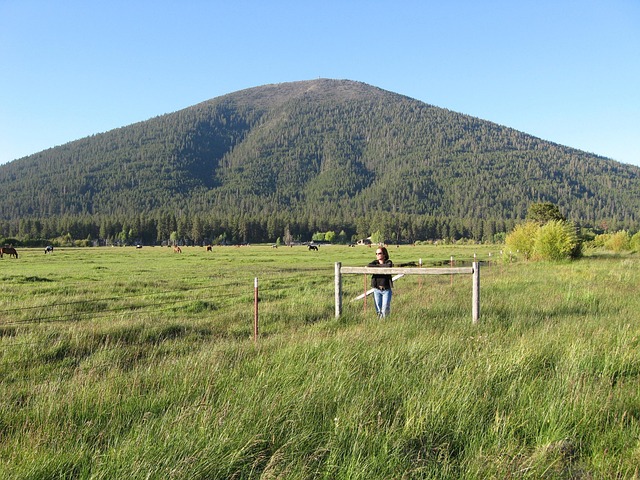Oregon residents can access legal support through pro bono services, low-cost legal aid societies, and community law centers tailored to diverse populations. Identifying local organizations like LASO or Oregon Law Center online is a first step. Evaluating eligibility based on income, family size, and case nature is crucial. Legal professionals and non-profits provide guidance, empowering individuals to navigate complex legal processes and protect their rights in areas like family law, housing, and workers' compensation. Online platforms and hotlines enhance 24/7 access to initial consultations and legal support.
In Oregon, understanding your legal support needs is the first step towards securing justice. This comprehensive guide explores how to find and access legal help, tailored to Oregon’s unique landscape. We delve into identifying local legal aid organizations, evaluating eligibility for pro bono services, navigating the legal process with professional guidance, and continuous legal support resources. Armed with this knowledge, folks can confidently navigate Oregon’s legal system, ensuring equal access to justice.
- Understanding Legal Support Needs in Oregon
- Identifying Local Legal Aid Organizations
- Evaluating Eligibility for Pro Bono Services
- Navigating Legal Process with Professional Help
- Resources for Continuous Legal Support Access
Understanding Legal Support Needs in Oregon

Many residents in Oregon face challenges navigating complex laws and regulations, emphasizing the crucial need for accessible legal support. Understanding personal legal needs is the first step toward securing appropriate assistance. Legal support can range from document preparation and review to representation in court proceedings. In Oregon, various organizations offer pro bono or low-cost services catering to different segments of the population.
The state’s legal landscape presents unique hurdles, especially for those with limited financial resources. Fortunately, Oregon has established a robust framework to ensure legal support access. This includes legal aid societies, community law centers, and private attorneys offering reduced fees. By leveraging these resources, Oregonians can gain clarity, protect their rights, and navigate legal processes effectively.
Identifying Local Legal Aid Organizations

Identifying local legal aid organizations is a crucial step in accessing legal support in Oregon. Fortunately, several non-profit and government-funded groups offer free or low-cost legal services to those who cannot afford them. These organizations often have specific eligibility criteria based on income and family size, so it’s essential to check their websites for detailed information.
You can start your search by looking up “legal aid in Oregon” online, which will yield a list of reputable agencies operating in different regions across the state. Some well-known organizations include Legal Aid Services of Oregon (LASO) and the Oregon Law Center, both of which provide a range of legal services tailored to low-income individuals and families. These groups offer assistance with housing issues, family law matters, consumer rights, and more, ensuring that residents have access to vital legal support.
Evaluating Eligibility for Pro Bono Services

Evaluating your eligibility for pro bono services is a crucial step in accessing free or low-cost legal aid in Oregon. Many organizations offer these services to those who cannot afford traditional legal representation, ensuring equal access to justice. Eligibility criteria vary across providers but often consider factors like income, family size, and the nature of your legal issue. Some programs cater specifically to low-income individuals, veterans, seniors, or victims of domestic violence.
To determine your eligibility, review the guidelines set by each legal aid organization and contact them directly for personalized guidance. Many offer initial consultations to assess your case and advise you on available options, helping you navigate the complex landscape of legal support access in Oregon.
Navigating Legal Process with Professional Help

Navigating the complex legal process can be daunting, especially if you’re facing challenging circumstances. This is where professional legal help becomes invaluable. In Oregon, accessing legal support is a crucial step toward ensuring your rights are protected and that you receive fair treatment. By enlisting the assistance of experienced lawyers or legal aid organizations, individuals can navigate the intricate legal landscape with confidence.
These professionals guide clients through various legal procedures, offer expert advice tailored to their unique situations, and help them understand their options. Whether it’s seeking custody rights, resolving a land use dispute, or fighting for workers’ compensation, having dedicated legal representation makes a significant difference. It empowers individuals to make informed decisions, ultimately enhancing their chances of achieving favorable outcomes in legal matters.
Resources for Continuous Legal Support Access

In Oregon, individuals seeking continuous legal support have a variety of resources at their disposal. Many non-profit organizations offer free or low-cost legal services to those who cannot afford private attorneys. These organizations cover a wide range of legal issues, from family law and immigration to housing and consumer rights. Additionally, local bar associations often provide referral services that connect individuals with qualified lawyers who may be willing to take on pro bono cases or offer sliding fee scales based on income.
Online platforms and legal aid hotlines are also valuable tools for accessing legal support. These resources allow people to get initial consultations, ask questions, and gain guidance without the need for face-to-face meetings. Many of these services are available 24/7, ensuring that Oregon residents can receive help whenever they need it. By leveraging these diverse resources, individuals can find the legal assistance they require to navigate complex legal matters effectively.














